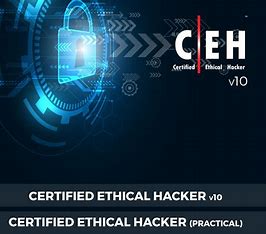
ICRI and EC-Council Collaborate to Launch Ethical Hacking and Cybersecurity Certification Program
Table of Contents
Introduction
In a significant move to address the growing need for cybersecurity professionals, the Institute of Clinical Research India (ICRI) and EC-Council have announced a joint venture to launch a certification program in Ethical Hacking and Cybersecurity. This collaboration aims to provide comprehensive training and certification to individuals aspiring to build careers in cybersecurity, equipping them with the skills necessary to tackle modern cyber threats. This article details the new certification program, its objectives, curriculum, and the broader implications for the cybersecurity landscape.
The Growing Importance of Cybersecurity
In today’s digital age, cybersecurity has become a critical concern for organizations across all sectors. The increasing frequency and sophistication of cyberattacks have highlighted the need for skilled professionals who can protect sensitive information and maintain the integrity of digital infrastructures. The collaboration between ICRI and EC-Council is a timely initiative aimed at bridging the gap between the demand and supply of qualified cybersecurity experts.
About ICRI and EC-Council
- ICRI (Institute of Clinical Research India): ICRI is a premier institution known for its contributions to clinical research and healthcare education in India. With a strong focus on innovative learning and industry-oriented training, ICRI has established itself as a leader in professional education.
- EC-Council (International Council of E-Commerce Consultants): EC-Council is a globally recognized organization specializing in cybersecurity certification, education, training, and services. Known for its Certified Ethical Hacker (CEH) program, EC-Council has been at the forefront of promoting cybersecurity awareness and competence worldwide.
Objectives of the Certification Program
The certification program in Ethical Hacking and Cybersecurity aims to achieve several key objectives:
- Skill Development: Equip participants with the knowledge and skills required to identify, analyze, and mitigate cybersecurity threats effectively.
- Industry Readiness: Prepare individuals for real-world cybersecurity challenges by providing hands-on training and practical experience.
- Career Advancement: Enhance career prospects for participants by offering a globally recognized certification that is valued by employers in the cybersecurity domain.
- Awareness and Advocacy: Promote a broader understanding of cybersecurity issues and the importance of ethical hacking in protecting digital assets.
Curriculum and Training Modules
The certification program is structured to provide a comprehensive understanding of ethical hacking and cybersecurity.
- Introduction to Cybersecurity:
- Overview of cybersecurity concepts
- Understanding the threat landscape
- Ethical Hacking Fundamentals:
- Introduction to ethical hacking and its principles
- Differentiating between ethical hacking and malicious hacking
- Network Security:
- Identifying and mitigating network vulnerabilities
- Techniques for securing network infrastructure
- System and Application Security:
- Securing operating systems and applications
- Implementing best practices for system and application security
- Penetration Testing:
- Conducting penetration tests to identify security weaknesses
- Reporting and remediating vulnerabilities discovered during tests
- Cyber Threat Intelligence:
- Gathering and analyzing threat intelligence
- Understanding the role of threat intelligence in proactive defense
- Leveraging threat intelligence for incident response
- Incident Response and Forensics:
- Steps for effective incident response
- Conducting digital forensics investigations
- Advanced Hacking Techniques:
- Exploiting advanced vulnerabilities
- Techniques for bypassing security mechanisms
- Defensive strategies against advanced hacking techniques
Training Methodology
The certification program adopts a blended learning approach, combining online modules, live virtual classes, and hands-on lab sessions. This methodology ensures that participants can learn at their own pace while also gaining practical experience through interactive sessions. Key features of the training methodology include:
- Online Learning Platform: Participants will have access to an online learning platform with comprehensive study materials, videos, and interactive quizzes.
- Live Virtual Classes: Regular live classes conducted by experienced instructors to provide real-time guidance and address queries.
- Hands-On Labs: Practical lab sessions where participants can apply their knowledge and practice ethical hacking techniques in a controlled environment.
- Assessment and Certification: Periodic assessments to evaluate progress, culminating in a final certification exam to validate participants’ skills and knowledge.
Benefits of the Certification Program
The collaboration between ICRI and EC-Council offers several benefits to participants:
- Globally Recognized Certification: The certification awarded upon completion of the program is recognized worldwide, enhancing participants’ credentials and employability.
- Comprehensive Curriculum: The program covers all essential aspects of ethical hacking and cybersecurity, ensuring a well-rounded education.
- Industry Expertise: Participants will learn from experienced professionals and industry experts, gaining insights into current trends and best practices.
- Career Opportunities: With the increasing demand for cybersecurity professionals, certified individuals will have access to numerous job opportunities in various sectors.
- Continuous Learning: The program encourages continuous learning and professional development, preparing participants for the evolving cybersecurity landscape.
Implications for the Cybersecurity Landscape
The launch of the certification program by ICRI and EC-Council has broader implications for the cybersecurity landscape:
- Addressing Skill Shortages: By training more professionals in ethical hacking and cybersecurity, the program helps address the global shortage of skilled cybersecurity experts.
- Enhancing Cyber Defenses: Certified individuals will be better equipped to protect organizations from cyber threats, thereby enhancing overall cyber defenses.
- Promoting Ethical Practices: The emphasis on ethical hacking promotes the importance of legal and ethical practices in cybersecurity, fostering a culture of responsibility and integrity.
- Supporting National Security: By improving the skills and knowledge of cybersecurity professionals, the program contributes to national security efforts to combat cybercrime and protect critical infrastructure.
Conclusion
The collaboration between ICRI and EC-Council to launch a certification program in Ethical Hacking and Cybersecurity is a significant step towards addressing the growing need for skilled cybersecurity professionals. With a comprehensive curriculum, practical training, and a globally recognized certification, the program promises to equip participants with the knowledge and skills necessary to excel in the cybersecurity field. As cyber threats continue to evolve, initiatives like this are crucial in ensuring that the cybersecurity workforce is prepared to defend against these challenges and protect digital assets worldwide.









